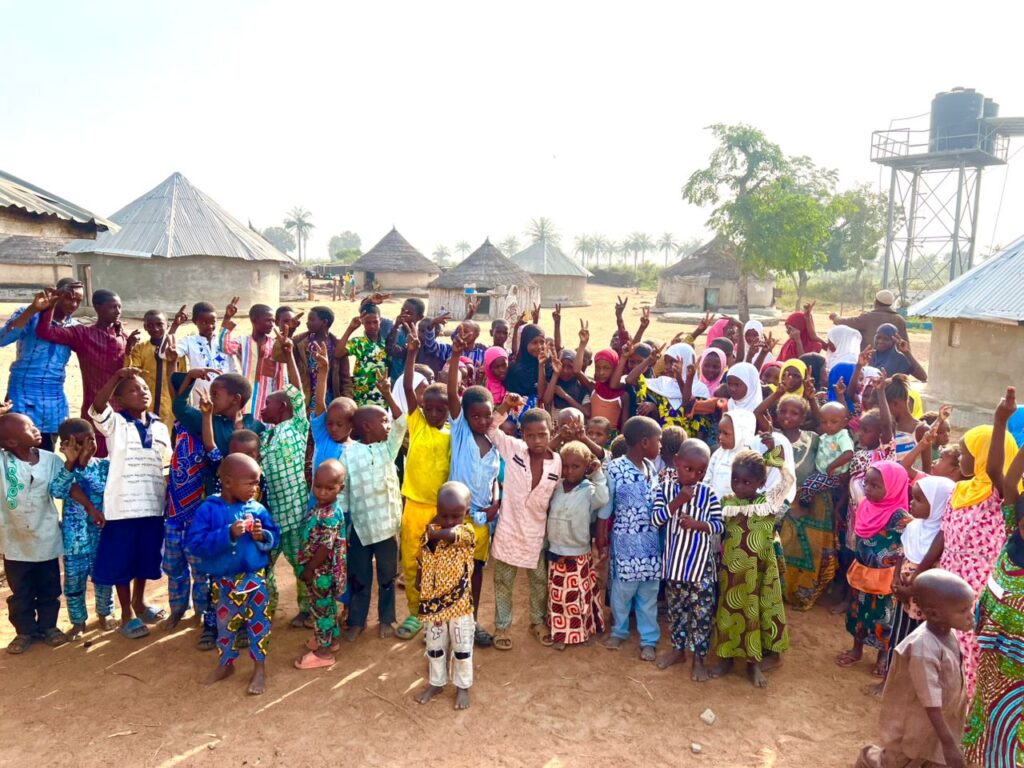Nigeria’s Quest for Inclusive Education
Nigeria faces a significant challenge in providing inclusive education, particularly for its nomadic children. These children, often belonging to pastoralist communities, remain marginalized in the education system, leaving millions behind. The quest for inclusivity continues to be a pressing issue that demands immediate attention and action.
Understanding the Nomadic Education Challenge
Many communities in Nigeria practice nomadism, moving from one place to another in search of grazing land for their livestock. This migration poses unique challenges for children’s education. Traditional schooling systems often do not account for the fluid lifestyles of these families, resulting in high dropout rates and a significant educational gap for nomadic children.
Government Initiatives and Their Limitations
The Nigerian government has implemented various initiatives aimed at improving education for nomadic communities. Programs like the Nomadic Education Program (NEP) have been introduced to encourage enrollment. However, the effectiveness of these initiatives has been hampered by inadequate funding, lack of infrastructure, and insufficient training for teachers to engage effectively with nomadic populations.
The Role of NGOs in Promoting Education
Non-governmental organizations (NGOs) play a vital role in bridging the gap in education for nomadic children. These organizations often provide mobile schools, teacher training, and resources tailored to the unique needs of these communities. By collaborating with local leaders and families, NGOs are working tirelessly to create a more inclusive educational environment.
Addressing Cultural Barriers
One of the significant barriers to education for nomadic children is cultural. Many families prioritize herding and traditional practices over formal education. Efforts to integrate educational programs with cultural relevance are crucial. Engaging community leaders and parents in the conversation can foster a greater appreciation for education and its long-term benefits.
Success Stories and Lessons Learned
Despite the challenges, there are success stories that provide hope. Communities that have embraced mobile educational models and incorporated local culture into the curriculum have seen increased enrollment and retention rates for nomadic children. These initiatives highlight the importance of adaptive learning environments that respect and honor the values of nomadic communities.
Call to Action: A Collaborative Future
For Nigeria to achieve truly inclusive education, a collaborative effort is essential. Stakeholders, including government bodies, NGOs, and community members, must work together to develop policies and programs that address the unique needs of nomadic children. It is critical to invest in sustainable solutions that ensure every child, regardless of their background, has access to quality education.
This article is structured for clarity and engagement, using relevant keywords such as “inclusive education,” “nomadic children,” and “Nigerian government initiatives” to optimize for SEO.
Nigeria’s Quest for Inclusive Education for Nomadic Children
Nigeria is undergoing significant efforts to improve its education system, particularly focusing on inclusivity for all children across the nation. However, millions of nomadic children remain at risk of being excluded from these educational advancements. This article delves into the challenges and potential solutions to foster inclusive education in Nigeria.
The Challenge of Nomadic Education
In Nigeria, nomadic communities often face unique challenges that hinder their access to education. The fluid nature of their lifestyle makes it difficult for children to attend traditional schools regularly. Factors such as distance, cultural perceptions, and economic constraints contribute to their exclusion from formal education systems.
Government Initiatives for Inclusive Education
The Nigerian government has implemented various policies aimed at enhancing access to education for marginalized groups. These initiatives include the National Policy on Education, which emphasizes the importance of inclusive education. However, the effectiveness of these programs is often hampered by inadequate funding and lack of infrastructure.
Community Engagement and Local Solutions
Local communities play a crucial role in promoting education among nomadic children. By engaging with these communities, government bodies and NGOs can develop tailored educational programs that respect cultural practices while encouraging school attendance. Community-driven initiatives have shown promise in bridging the educational gap.
Innovative Approaches to Education
Adopting innovative teaching methods can significantly benefit nomadic children. Mobile schools, which travel with the communities, have been introduced in some regions. These schools not only provide flexibility but also incorporate local languages into the curriculum, making learning more relatable and effective for the children.
Addressing Socioeconomic Barriers
Socioeconomic factors heavily influence educational access. Many nomadic families prioritize livelihood over education, leaving children without the opportunity to attend school. Addressing these barriers through economic support programs can encourage families to send their children to school, thus promoting a culture of learning.
The Role of Technology in Education
Technology can play a transformative role in enhancing educational access for nomadic children. Digital platforms and e-learning resources allow for remote learning opportunities, making education accessible even in the most isolated regions. Harnessing technology can help bridge the gap caused by geographical and infrastructural limitations.
Conclusion: A Collective Responsibility
Ensuring inclusive education for nomadic children in Nigeria requires a collective effort from the government, local communities, NGOs, and the private sector. By recognizing the unique challenges these children face and developing tailored solutions, Nigeria can work towards an educational system that leaves no child behind. The journey towards inclusivity may be challenging, but with sustained commitment, a brighter future is within reach for all children.


